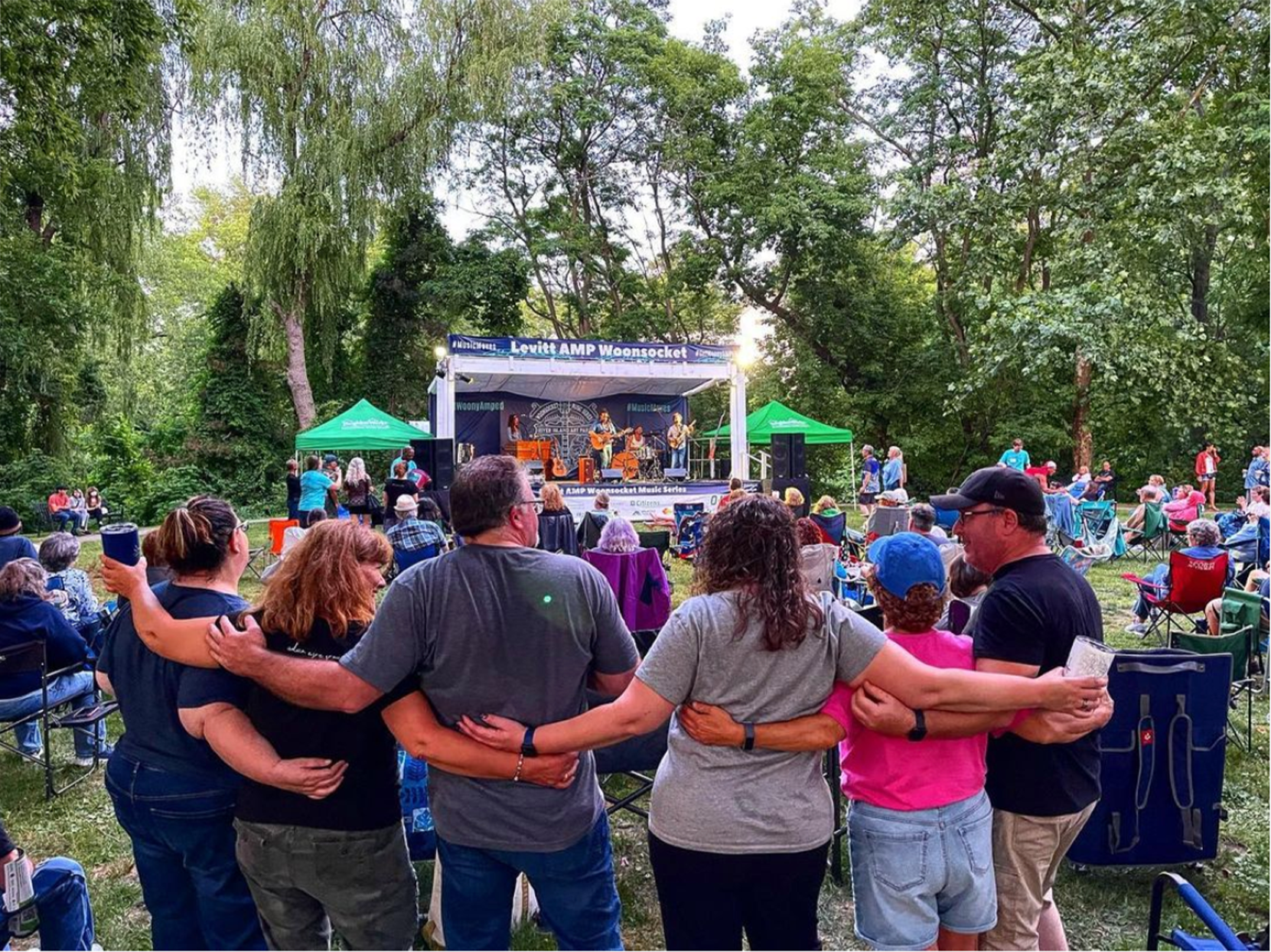
Plato once said, “Music gives soul to the universe, wings to the mind, flight to the imagination, and life to everything.” While recording and video technology enable us to enjoy our favorite artists’ music from home or on the go, there’s nothing quite like the thrill and vitality of experiencing a live concert. Enjoying live music in person, we experience its irreplaceable power to create a sense of connection and improve our mental, physical and emotional well-being. Levitt audiences experience first-hand that live music gives us a reason to come together to celebrate our shared humanity. As a social impact funder, the Levitt Foundation is committed to strengthening the social fabric of communities through live, free music. Read on to learn more about the scientific and social reasons behind the healing power of live performances.
The Social Benefits of Live Music
Music is a connector. It transcends barriers and brings people together through shared experiences. And in today’s increasingly disconnected world—where loneliness is on the rise—the unifying power of music is more valuable than ever. According to Risa Wilkerson’s recent article, “A Sense of Belonging,” published in the Summer 2022 issue of Stanford Social Innovation Review, social isolation is causing negative impacts on public health, comparable with those of chronic smoking or alcohol consumption. People lacking social connection have “links to depression, poor sleep, accelerated cognitive decline, and impaired immunity, and increases risk of stroke, coronary heart disease, and premature death.” So how can we combat this harmful trend? Many studies point to live music.
In 2018, global live entertainment company Live Nation released The Power of Live, a study exploring the trends and behaviors of 22,500 live music fans from 11 countries. The study found live music to be an essential unifying force in today’s fragmented world. Respondents across three generations and five continents all said that their music preference revealed more about their identity than their hometown, race or religion. In a biometric experiment conducted as part of the study during a live concert, 70 percent of participants reacted simultaneously in sync, such as nodding their heads, while enjoying live music with one another; their involuntary, yet coordinated movements resulted in the same effect as oxytocin, “the bonding hormone.” Participants also self-reported a five-fold mood increase throughout the show.
Committed to reflecting, learning and contributing to the field of creative placemaking and the role of arts investments in communities, the Levitt Foundation commissioned Slover Linett Audience Research to conduct a multi-year study in 2016 to explore the social impact of Levitt programs in communities. Setting the Stage for Community Change revealed that live music experiences at Levitt venues sparked both social bonding and social bridging, allowing people to build social capital by interacting with people inside and outside of their social networks. More than half of the concertgoers surveyed reported feeling more connected to their local community when experiencing a Levitt concert. In addition to providing bonding opportunities for friends and families attending the show together, the study found that the connective power of music (particularly when enjoyed in a welcoming, open lawn setting) inspired interactions among concertgoers of all ages, abilities and socio-economic backgrounds.
The Healing Benefits of Live Music
Have you ever felt so uplifted at a live concert that you’ve forgotten all your day-to-day stress? If so, you’re not alone and there’s research suggesting why that concert gave you a boost. Beyond the social benefits, live music has been shown to improve your overall well-being. A 2022 study published in Supportive Care in Cancer confirmed that live music can help alleviate depression. When randomly assigning 62 adolescent and young adult patients undergoing stem cell transplants to receive four-week live music therapy, researchers found significant reductions in depression and stress levels, as well as improved quality of life in the participating patients.
Live music can also help improve your physical health. A 2016 study on how music moves the human heart found that live performances in particular have the power to reduce listeners’ tension levels and increase relaxation. Researchers compared listeners’ physiological reactions to live and recorded versions of the same piano performances. Participants were found to be significantly more attentive while listening to the live performances. The study also concluded that sharing time and place with the artists helped to reduce the audience’s stress levels.
Last but not least, live music can also improve your emotional wellness. A 2017 study published in European Journal of Cancer Care looked at the mental state of 111 inpatients and found a significant decrease in their anxiety levels after they attended live concerts. The study revealed that live music improved people’s psychological condition by increasing their positive feelings and reducing their negative feelings.
Music is a universal language that all of us can share, regardless of our age, gender, culture, skin color or socio-economic background. Experiencing music in a live setting can inspire even more positive effects, connecting us to one another and healing our souls and bodies. This summer, be sure to experience the power of live music yourself at one of the 500+ free Levitt concerts taking place across the country. Click here to find a Levitt lawn near you!




